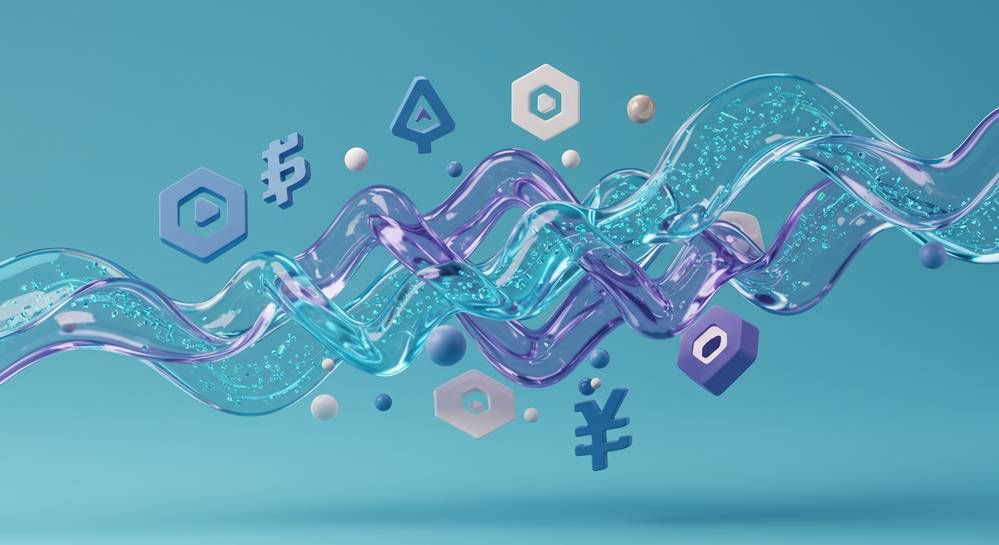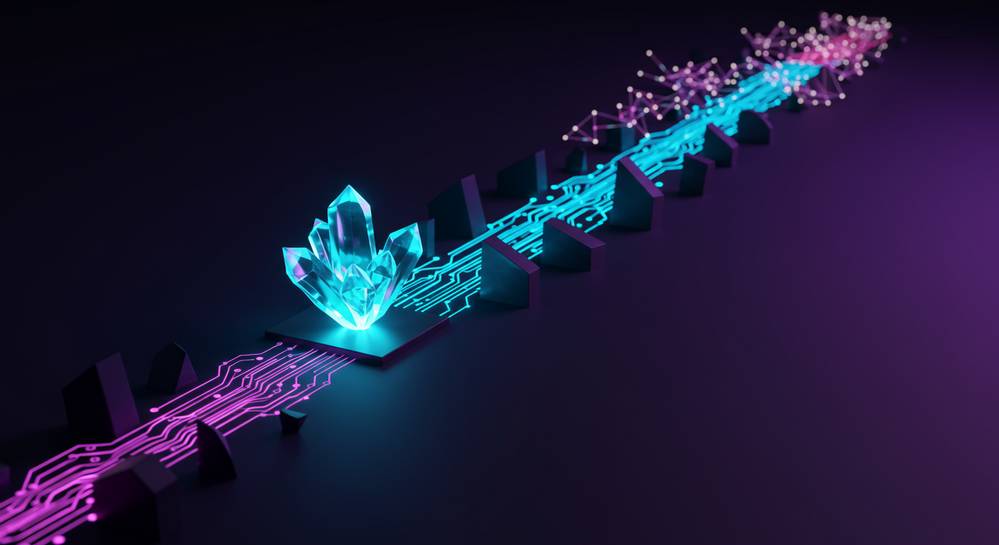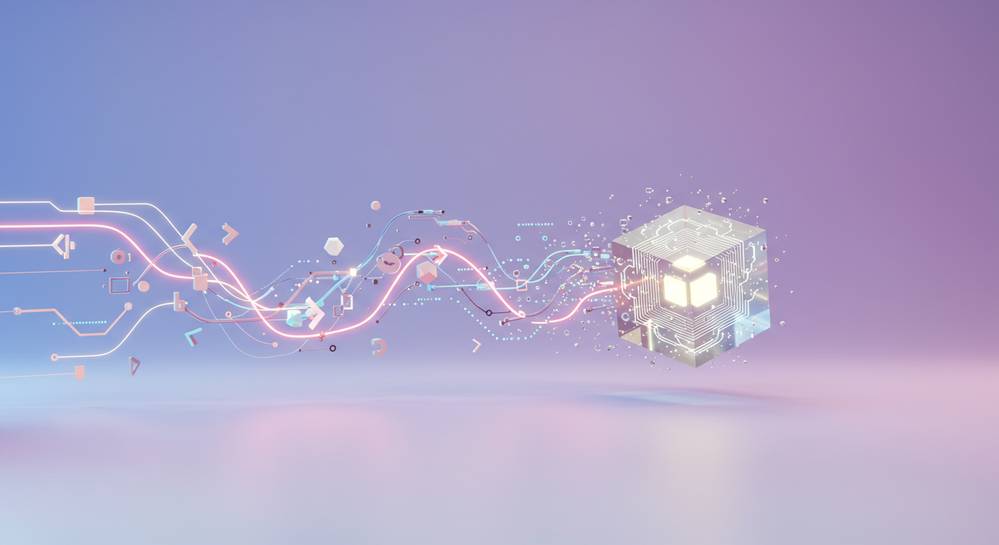The buzz around blockchain is loud—and for good reason. We often hear about its impact on the future of finance, but its reach stretches far beyond. From revamping supply lines to guarding health records, blockchain is a game-changer. In this read, we’re diving into seven surprising real-world applications of blockchain that show how this tech is unlocking a new era of innovation. You might think you know blockchain, but these applications will have you seeing it in a whole new light.
Transforming the Finance Sector with Blockchain
Innovations in Cross-Border Payments
Blockchain is changing how we send money across borders. Now, we can skip the wait and high fees. This magic happens through blockchain’s round-the-clock operation and its global reach. Think about sending cash like an email. Easy, right? That’s blockchain making life simpler. But how does it do this?
Blockchain allows secure transfers without the usual stop at a bank. It’s quick and cuts costs. This tech keeps an open ledger. It means we can track every step of the transaction. So, errors or fraud fall big time. This trust in transactions means the world to us, literally.
For workers sending money home or businesses dealing globally, blockchain is a win. It supports local currencies and lessens fuss over exchange rates. We’re talking about an open field for sending and getting funds, minus the headache.
Automating Insurance Claims with Smart Contracts
Ever had a hard time with an insurance claim? Long waits, lots of paper, and complex steps. Enter smart contracts. They’re like regular contracts, but they work on their own once set terms are met. Big players in insurance are noticing. They see how smart contracts speed things up and seal holes in the system.
Smart contracts check claims fast. No back-and-forths needed. They work on trust and the details in the blockchain. So if a claim is valid, payment happens right away. No middleman, no extra steps. It’s all about getting things done without delay. Plus, it’s fair; the rules are the same for everyone.
Blockchain breathes fresh air into how finance works. It’s secure, smart, and keeps its word. Whether moving money or dealing with insurance, blockchain does it better. It’s hard not to see how it’s opening doors, making bitter tasks a little sweeter.
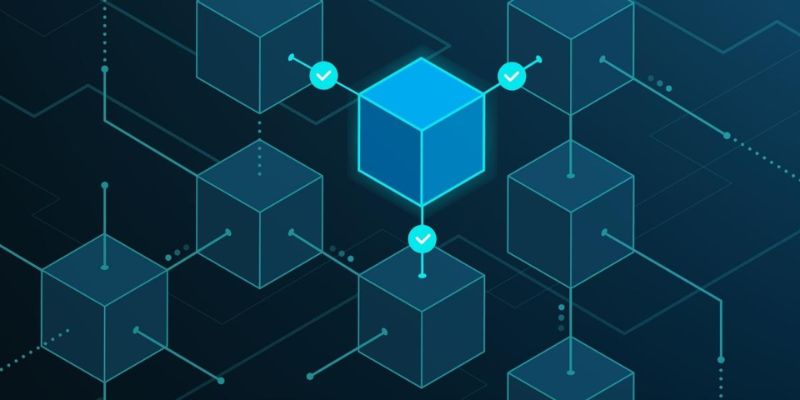
Revolutionizing Supply Chains through Blockchain Technology
Enhancing Food Safety Traceability
Can blockchain technology improve food safety traceability? Yes, it can greatly enhance it.
Blockchain brings a game-changing advantage to tracking items along the food supply chain. By recording each step a product takes, we make sure it’s safe. Every move from farm to table is clear and unchanged. If there’s a problem, we can zoom in on its source quick. That’s because each piece of food data gets stored securely. It links to all others like a chain that you can’t break.
Let’s break it down. Picture an apple in a store. Using blockchain, I can track that apple all the way back to when it was just a flower. I can see what farm it grew on, what path it took, and even if it met safety checks. This wasn’t so easy before blockchain.
Now, let’s say there’s a scare about bad apples. We can pull just the bad ones. We don’t waste good food, and we keep folks safe. With blockchain, fewer people get sick from food because we spot issues faster.
Blockchain tech also means no one can cheat the system. Each step gets locked in. Everyone involved has to play by the rules. When we trust where our food comes from, we enjoy it more.
Achieving Transparency in Global Logistics
How does blockchain achieve transparency in global logistics? By making every transaction clear and tamper-proof.
Big ships and trucks move things all around the world. Keeping all that stuff straight is hard. It’s like a giant game with too many pieces. Add in papers that can get lost or lied on, and it’s a mess. But with blockchain, we clean it up.
When we use blockchain in shipping, everyone can see the same info. It’s like we’re all looking at the same map. No more lost or fake info about what’s where. And if you need to check who did what, it’s all there.
Surprise fees and delays drop because it’s all about being honest and upfront. I can see right away if my delivery is stuck. And if a storm slows down my package, it’s no secret. With all the info shared, we solve problems together.
This shared truth helps businesses everywhere. It lets them plan better and move things smoother and faster. It slashes the costs of mix-ups and waiting. This is huge because when shipping works better, the world works better.
So imagine getting things from across the world as easy as from your neighbor. That’s the power of blockchain in global logistics. We’re making it happen, and it’s only the start.

Blockchain in Healthcare: Ensuring Data Integrity and Security
Implementing Healthcare Data Security
Healthcare data security is a big deal. It keeps our most private info safe. That’s where blockchain comes in. It’s like a vault that’s super tough to crack. It records data in a way that you can’t change without it being super obvious. This quality makes it perfect for storing medical records.
Blockchain creates secure links for info sharing. It’s also great at keeping logs of who sees what. So, if someone tries to mess with your healthcare data, it’s not easy. This gives doctors and patients peace of mind. Their sensitive info stays just that—sensitive and private.
In healthcare, every move counts, especially when handling info. Smart contracts make this easier. They follow rules set by doctors and patients for managing records. So, when you meet certain conditions, like visiting a doctor or getting a test done, the system updates on its own. No fumbling with files or risking human error. It’s neat, right?
Now, let’s say a new treatment comes out. It could be a game-changer. But healthcare pros need to know its effects fast. If patients share their records securely, via the blockchain, those in charge can spot trends. They see what works and what doesn’t in real-time.
Overall, blockchain gives healthcare a digital shield. It ensures info stays correct, unchanged unless it’s supposed to change. And really, in healthcare, keeping data pure is key. This keeps everyone safe, healthy, and heading toward brighter, more informed healthcare solutions.
Blockchain for Identity Verification in Medical Records
Ever worried about someone stealing your medical identity? Yeah, it’s a thing, and it’s scary. But there’s good news, too. Blockchain can stop this. It’s a champ at proving who you are, keeping your records locked down.
With blockchain, each patient has a unique ID. Think of it as a secret handshake that only you and your doctor know. When you need care, your ID shows you’re you, and it shows it fast. This cuts the risk of mix-ups or fraud.
Blockchain takes your complex medical history and keeps it both simple and complex. Simple for you to get, but complex for hackers to break into. It’s all about balance. With better ID checks, hospitals can focus on helping you, not fighting fraud.
It does more than just keep people honest. It means quicker service, fewer mistakes, and less paperwork. With the right links in place, your records follow you, safe and sound. They’re there when you need them, every time.
So, in healthcare, blockchain is not just cool tech. It’s a guardian, a shield, a trusty sidekick. It makes sure that you—and only you—can use your healthcare data. It’s a step toward healing with security and comfort. And isn’t that what we all want at the doctor’s?
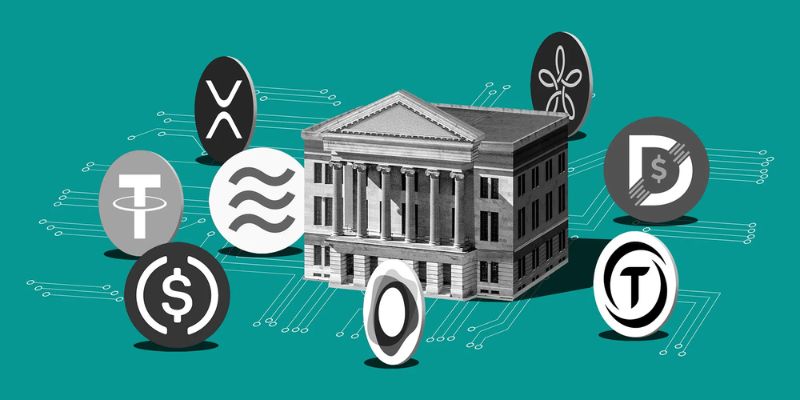
Expanding the Horizons of Digital Ownership and Intellectual Property
The Rise of NFT Marketplace Applications
The world of art and collecting has changed. We now have NFTs, which stand for non-fungible tokens. Think of them like unique digital stickers you can buy, sell, or trade. They prove you own a piece of digital art or a song. NFT marketplace applications make this easy. They let artists sell their work straight to fans. This cuts out middlemen and keeps things fair.
But how do NFTs work? They use blockchain technology benefits. NFTs are tokens on a blockchain. They show who owns a digital item. You pay with cryptocurrency transactions to buy them. Smart contracts usage makes this safe and automatic. No one can mess with the deal. The contract does everything once you pay.
NFTs are not just for art. Anything digital can be an NFT. Even tweets and memes! This makes them a big deal for the future. We now can own and collect digital items like never before.
Protecting Intellectual Property Rights with Distributed Ledgers
Think about a new song or a book. Their creators have rights to them. But proving this can be hard. Here’s where blockchain can help. It can protect intellectual property rights. This is due to one of its key features—distributed ledgers. They keep records across many places. This makes them safe and hard to change. When you add your work to a blockchain, it gets a unique, unchangeable record.
This record shows when and where the work popped up first. Say someone tries to copy it. You can prove they’re wrong with the blockchain record. This fights theft and keeps creators’ rights safe.
Blockchain isn’t just for songs or books. It covers all things you can make. Things like inventions, designs, and even brand logos. It’s powerful for creators all around the world. They can feel sure that their work and efforts stay safe.
In short, blockchain changes how we own and protect creative works. It brings new life to art, music, and writing in the digital world. It’s exciting to see where this will go as more people create and share online. Blockchain makes sure ownership and rights stay fair and clear for everyone involved.
In summary, we’ve explored how blockchain is changing finance, supply chains, healthcare, and digital ownership. We saw how it makes paying across borders easier and keeps insurance claims honest. It also helps us know where our food comes from and keeps global shipping clear. In healthcare, blockchain guards our personal health info and makes sure our records are real. It even lets artists sell their work online without worry and stops others from stealing their ideas. I believe blockchain will keep making these areas better for all of us.
Q&A :
What are the practical uses of blockchain technology in everyday life?
Blockchain technology has stretched beyond its initial application in cryptocurrency to offer various real-world uses. It can provide secure transactions, transparent record-keeping, and reduce fraud in multiple industries, including finance, supply chain management, and even in voting systems. The immutability and decentralization aspects of blockchain help in creating more transparent and secure networks for conducting business and managing data.
How is blockchain technology changing the financial industry?
Blockchain is revolutionizing the financial sector by enabling quicker and more secure transactions. By utilizing blockchain, banks and financial institutions can reduce the cost and time associated with cross-border payments, enable real-time settlement of trades, and improve transparency in transactions. Smart contracts powered by blockchain can also automate traditional banking operations, reducing the need for intermediaries and lowering the chances of fraud.
Can blockchain be used for securing personal identity information?
Yes, blockchain can significantly enhance personal identity security. It offers a decentralized approach to identity management, enabling individuals to control their personal data. Blockchain’s inherent features such as tamper-evident records and cryptographic security allow for creating a secure and unforgeable digital identity system, reducing the risks of identity theft and fraudulent activities.
What are the implications of blockchain for supply chain management?
In supply chain management, blockchain technology enables the creation of a transparent and unchangeable ledger of goods from production to delivery. It helps in verifying the authenticity of products, monitoring their condition throughout transit, and ensuring that all parties involved have access to the same information. This increased visibility and traceability can significantly reduce errors, waste, and fraud, leading to a more efficient and trustworthy supply chain.
How does blockchain support the concept of smart contracts?
Smart contracts are self-executing contracts with the terms of the agreement directly written into lines of code. Blockchain supports smart contracts by providing a secure and transparent platform for them to operate on. This ensures that once the pre-defined rules of the contract are met, actions are automatically executed without the need for a central authority or intermediaries. This can lead to reduced costs, improved speed, and enhanced trust among parties involved in a contract.

